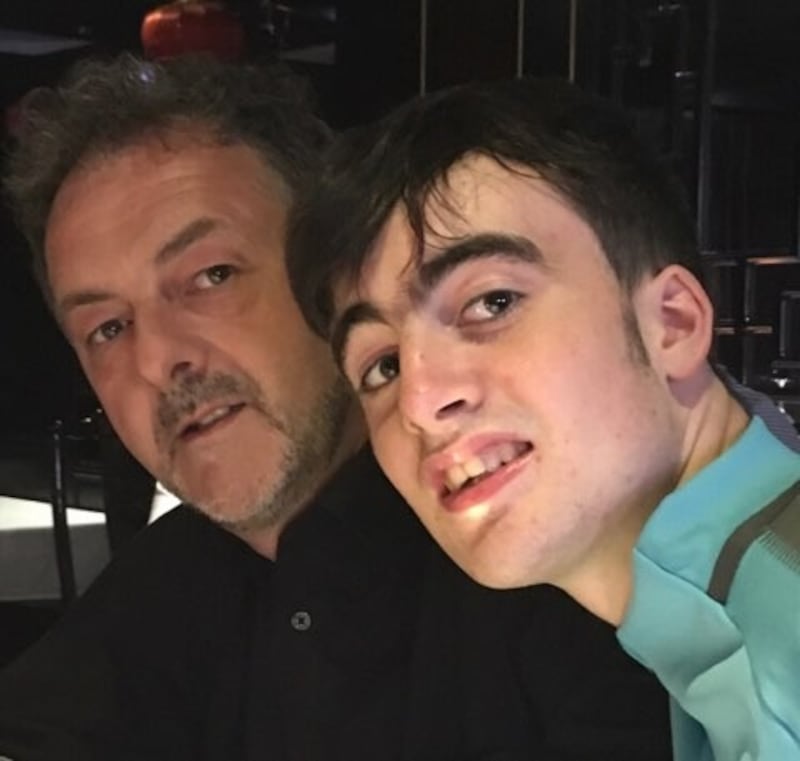Doctors treating epilepsy patients say they will shun the Government’s medicinal cannabis access programme over concerns of “inappropriate and potentially harmful” products being made available under it.
Nine neurologists, along with patient organisations, have written to Minister for Health Stephen Donnelly expressing concern over the products likely to be offered.
To date, the four products accepted for inclusion all contain THC, the psychoactive compound in cannabis.
“Not only is there a lack of evidence to support the use of THC in epilepsy, but there are significant concerns regarding its psychiatric and cognitive effects, particularly when used in children,” the letter states.
While CBD, another compound in cannabis, is proving to be relatively safe for patients under clinical supervision, the doctors point out that no products containing pure CBD have been accepted for use under the programme.
They says the risks associated with THC compounds are “under-appreciated”.
"Because there is widespread concern about the programme among neurologists in Ireland (because inappropriate and potentially harmful products will be available through the programme), the programme runs the risk of not being utilised," they said.
Supplier issue
Two years after it was announced, no cannabis-based product is available under the programme to treat patients with severe epilepsy, and no patients are registered with the access programme.
The HSE said the supplier of two of the products is now no longer interested in the Irish market. Another supplier says availability of its product has been delayed by an “export licence time-lag” in the country of manufacture.
The earliest availability of one of the products is next October/November, but this may be pushed further back because the country of manufacture of some products is being changed.
Specialists treating the condition say they are concerned the programme will be a missed opportunity to help their patients.
Dr Colin Doherty, consultant neurologist at St James's Hospital, described the programme as a "farce" and said it was "bizarre" that no suitable product was available for his patients.
“I’m receiving frustrated calls every day from patients telling me the scheme has been launched, but there is nothing on it for them,” he said. “This is supposed to be the solution, but it can’t, won’t and never will, in its current form, deliver for patients and their families.”

Jo and Brendan Hogan, from Ballon, Co Carlow, believe they are "running out of road" in terms of treatment options for their 21-year-old son Ben, who has severe epilepsy. He is now on his 12th medication to control his seizures but Dr Doherty has advised that he needs a new option.
He suffers up to five seizures a day and spends up to 80 per cent of the time coming in or going out of seizures.
Severe seizures can lead to him falling “in a nano-second,” his parents say, thereby risking injury. After breaking his jaw twice in four years, he wears a helmet routinely for protection. Though unable to take the Leaving Cert due to his condition he continues to attend school regularly.
Dr Doherty believes cannabis-based products may help patients like Ben who have severe epilepsy but are not responding to more conventional treatments. However, he said that while worth trying, they are not a “silver bullet” or “miracle cures” .
Up to 500 epilepsy patients who suffer weekly seizures and for whom other medicines have failed could benefit from CBD-containing treatments, he estimates.
Reimbursement
The department says documentation to enrol patients on a cannabis for medical use register is currently being finalised in consultation with specialists.
While one product has been approved for patients under the access programme, doctors treating epilepsy patients say it has a THC level that is too high to be a starting cannabinoid treatment for most people with the condition.
Dr Doherty says there is another suitable product, but because it is UK-manufactured a change in product legislation is needed in the post-Brexit environment to allow it on the Irish market.
Four years ago, an official report recommended the establishment of an access programme for medicinal cannabis for patients with three conditions: severe epilepsy; spasticity associated with multiple sclerosis; and nausea and vomiting associated with chemotherapy. Legislation was passed in 2019 and work has been underway since on setting up the programme.
One drug, Epidyolex, has been licensed to treat a narrow spectrum of epilepsy-related cases but has yet to be approved for reimbursement, so patients have to fund their own treatment.
The Hogans say they could not afford this but Dr Doherty says some of his patients are paying large amounts for CBD treatments not covered under the State’s drug schemes.
Under separate arrangements, at least 63 patients have secured access to medicinal cannabis products from a pharmacy in the Netherlands, through a licence from the Minister for Health. Since travel was disrupted during the pandemic, the Department of Health has been organising courier collection of these products and delivery to patients' homes.













